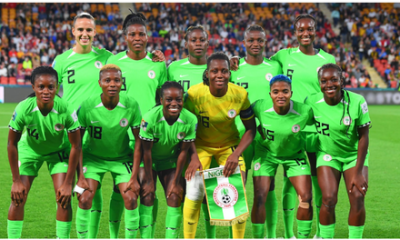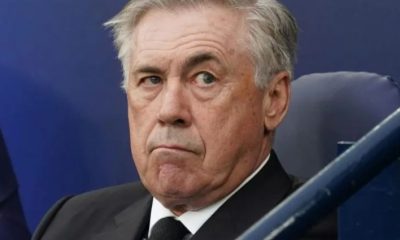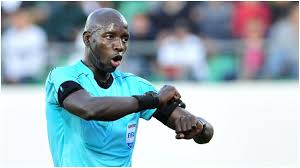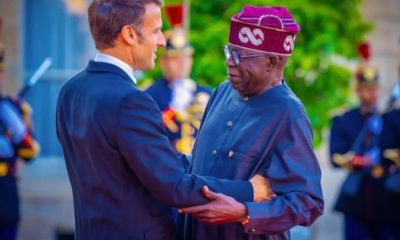Europe
120,000 ‘stolen’ babies: Georgia’s trafficking scandal
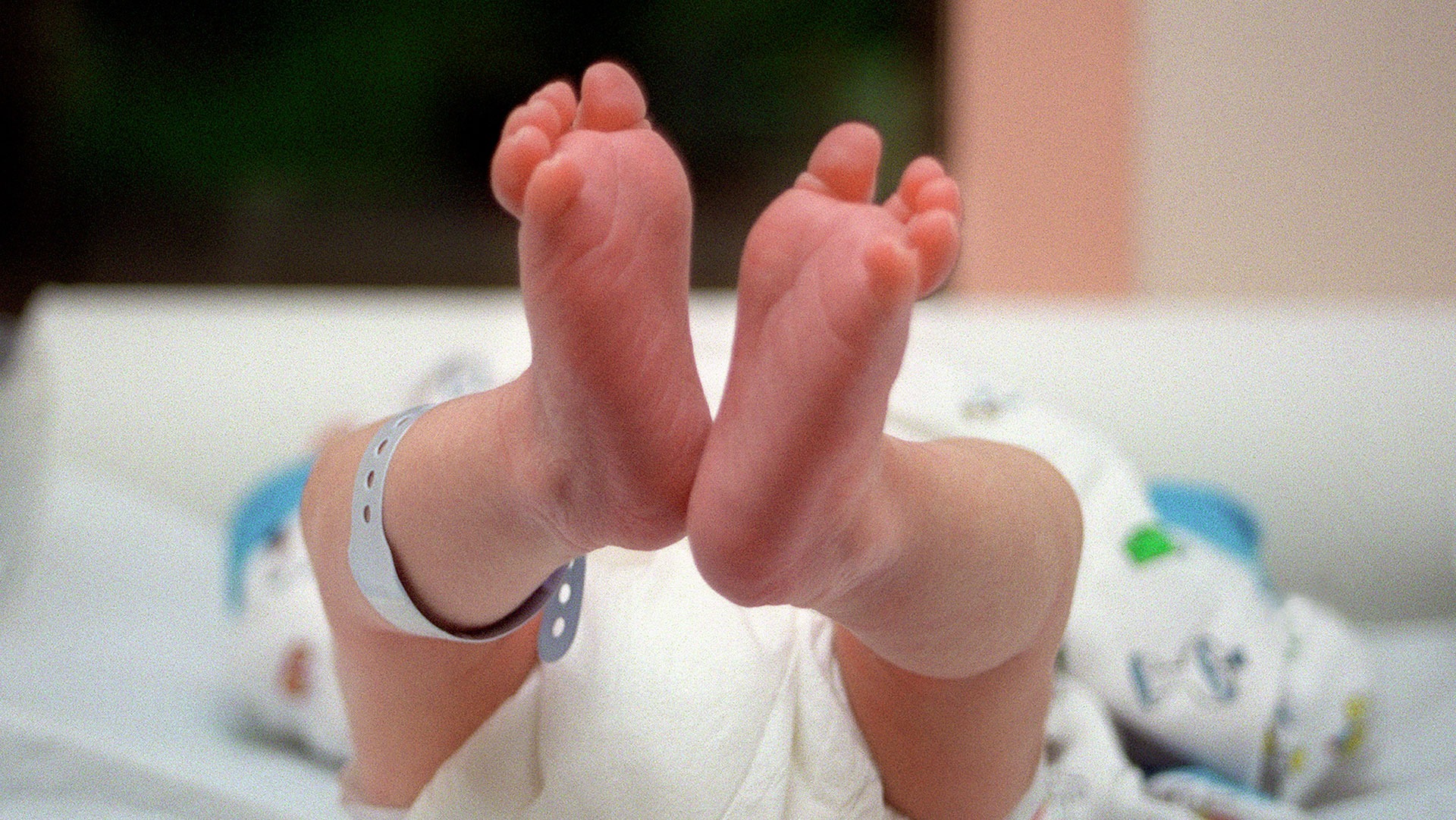
Georgian student Elene Deisadze was browsing TikTok in 2022 when she stumbled across the profile of a girl, Anna Panchulidze, who looked exactly like her.
Months later, after chatting and becoming friends, they both separately learned they were adopted, and last year decided to take a DNA test.
It revealed they were not only related but identical twins.
“I had a happy childhood, but now my entire past felt like a deception,” Anna, an English student at university, told AFP.
Far from an innocent case of separation at birth, the sisters are among tens of thousands of Georgian children who were illegally sold in a decades-long baby trafficking scandal.
The scheme, uncovered by journalists and families searching for lost relatives, saw babies stolen from their mothers — many of whom were told they had died — and then sold to adoptive parents in Georgia and abroad.
Journalists have found that the illegal adoptions took place over more than 50 years, orchestrated by a network of maternity hospitals, nurseries and adoption agencies that colluded to take the children from their parents, falsify birth records, and place them with new families in exchange for cash.
- -‘New reality’ –
Elene and Anna, now 19, began unravelling their hidden past two years ago.
“We became friends without suspecting we might be sisters, but both of us felt there was some special bond between us,” Elene, a psychology student, told AFP.
Last summer, both of their parents independently told the girls they had been adopted — revelations they had long planned to make.
It was then that the pair decided to take the genetic test that would reveal they were identical twins.
“I struggled to process the information, to accept the new reality — the people who had raised me for 18 years are not my parents,” said Anna.
“But I feel no anger whatsoever, only immense gratitude to the people who raised me, and joy at finding my flesh and blood,” she added.
- -‘Buy a baby’ –
The test for Elene and Anna was arranged with the help of Georgian journalist Tamuna Museridze, who runs a Facebook group dedicated to reuniting babies stolen from their parents.
It has over 200,000 members — including mothers who were told by hospital staff that their babies had died shortly after being born, but then discovered years later they might be alive.
Museridze set up the group in 2021 in a bid to find her own family after learning she had been adopted.
She soon uncovered the mass baby-selling operation.
“Mothers were told their babies had died shortly after birth and were buried at a hospital cemetery,” Museridze said.
“In fact, hospitals had no cemeteries, and babies were being secretly whisked away and sold to adoptive parents.”
The new parents were often unaware that the adoptions were illegal and told fabricated stories about the circumstances.
“Some people, however, consciously chose to circumvent the law and buy a baby” to avoid decade-long waiting lists, Museridze told AFP.
She says she has evidence that at least 120,000 babies “were stolen from their parents and sold” between 1950 and 2006 when anti-trafficking measures by reformist president Mikheil Saakashvili eventually quashed the scheme.
In Georgia, new parents would pay the equivalent of many months’ salary to arrange the adoption, while babies trafficked abroad were sold for up to $30,000, Museridze said.
- –‘Virtually impossible’ –
Elene’s adoptive mother, Lia Korkotadze, decided with her husband to adopt after learning they couldn’t have children a year into their marriage.
“But adopting from an orphanage seemed virtually impossible due to incredibly long waiting lists,” the 61-year-old economist told AFP.
In 2005, an acquaintance told her about a six-month-old baby available for adoption from a local hospital — for a fee.
Korkotadze said she “realised that was my chance,” and agreed.
“They brought Elene right to my house,” Korkotadze said, never suspecting there was “anything illegal.”
“It took months of excruciating bureaucratic delays to formalise the adoption through court,” she said.
The tale of Anna and Elene mirrors that of another set of twin sisters — Anna Sartania and Tako Khvitia.
They were separated at birth and sold to different parents, managing to reunite years later after finding each other on social media.
More than 800 families have been reunited thanks to Museridze’s Facebook group.
Successive Georgian governments have made multiple attempts to investigate the scheme and have made a handful of arrests over the last 20 years.
Interior ministry spokesman, Tato Kuchava, told AFP that an “investigation is underway” into Museridze’s revelations, but declined to provide further details.
Georgia’s Prime Minister, Irakli Kobakhidze, said last week in parliament that Tbilisi is among the world leaders in combating trafficking.
But Museridze says the state’s response has been lacking.
“The government did nothing tangible to help our efforts.”
You may like
-
Ruud van Nistelrooy Opens Up on Hurtful Manchester United Exit Before Taking Leicester City Job
-
Minimum Wage: Cross Rivers Workers to embark on indefinite strike
-
Bayer Leverkusen Forward Victor Boniface Faces Possible Sanction for Reckless Driving Incident
-
International Friendly: Gusau, Sanusi, Falode to cheer Super Falcons against Les Bleues
-
Ancelotti Optimistic Despite Real Madrid’s Struggles in Champions League League
-
Paul Merson Predicts Premier League Results for Weekend Fixtures
-
Naira Appreciates Against Dollar Amid Increased FX Supply
-
8th African Nations Championship: Togolese, Moroccan officials for Nigeria, Ghana matches
-
Super Eagles Drop Eight Places in Latest FIFA Rankings
-
Tinubu Makes Historic State Visit to France as Macron Seeks Closer Economic Ties with Nigeria
-
Simon Ekpa’s Legal Troubles Deepen as Finnish Court Sets Date for Terror Charges
-
UCL: Ancelotti reveals Real Madrid’s toughest opponent
Europe
Discover Portugal’s Hidden Gems: The Best Underrated Travel Destinations
While the popular destinations in Portugal are undoubtedly worth visiting, these underrated gems offer a unique way to experience the country’s diverse landscapes, rich culture, and warm hospitality.
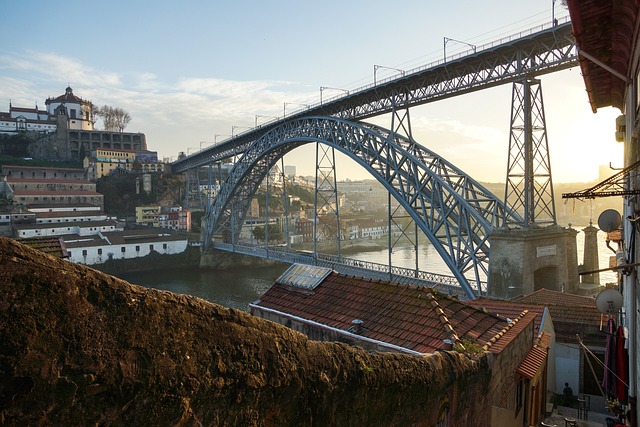
When people think of Portugal, their minds often drift to Lisbon’s vibrant city life, Porto’s wine cellars, or the sun-kissed beaches of the Algarve. But there’s so much more to this captivating country. Beyond the well-trodden tourist paths, Portugal hides countless underrated gems that offer unique experiences, breathtaking landscapes, and rich cultural encounters. Let’s explore some of the best underrated Top 5 travel destinations in Portugal that should be on your radar.
1. The Azores: Nature’s Playground in the Atlantic

Nestled in the middle of the Atlantic Ocean, the Azores is an archipelago of nine islands that remain one of Portugal’s best-kept secrets. Known for its lush landscapes, volcanic craters, and serene lakes, the Azores offers a tranquil escape from the hustle and bustle.
- What to Experience: Head to São Miguel for its stunning Sete Cidades Lake, a volcanic crater with twin green and blue lakes. For adventure seekers, Pico Island offers incredible hiking opportunities up Mount Pico, Portugal’s highest peak. Dive into the clear waters of Santa Maria or Graciosa Island for some of the best diving spots in the world.
- Why Visit: Fewer tourists mean more opportunities to connect with nature. The Azores’ geothermal activity also provides unique experiences like bathing in hot springs or enjoying food cooked underground using volcanic heat.
2. Alentejo: Portugal’s Rustic Heartland

Located between Lisbon and the Algarve, Alentejo is a region that boasts vast rolling plains, golden wheat fields, olive groves, and vineyards. Despite its beauty, Alentejo is often overlooked by travelers who tend to head straight to Portugal’s more popular areas.
- What to Experience: Wander through the white-washed streets of Évora, a UNESCO World Heritage city, and marvel at its Roman temple. Explore the medieval village of Monsaraz with its stunning views of the Alqueva Lake. Discover the beautiful beaches of Comporta or head inland to experience the tranquility of Serra de São Mamede Natural Park.
- Why Visit: Alentejo offers an authentic taste of rural Portugal. The region is known for its delicious wines, local cuisine, and warm hospitality, making it a perfect destination for foodies and wine lovers.
3. Serra da Estrela: The Land of Snow and Adventure

Known as Portugal’s highest mountain range, Serra da Estrela is a haven for outdoor enthusiasts and nature lovers. While it’s the only region in Portugal where you can ski, there is much more to explore than just snow.
- What to Experience: Visit Covilhã, a charming town with cobblestone streets and street art that blends old and new. Take a scenic drive to Torre, the highest point in mainland Portugal. Explore the glacial valleys, hike through the lush forests, or taste the region’s famous Serra da Estrela cheese.
- Why Visit: Whether you’re skiing in winter or hiking in summer, Serra da Estrela offers year-round activities for all kinds of travelers. Its landscapes, local traditions, and cozy mountain villages make it an ideal destination for those looking to explore Portugal’s natural beauty.
4. Viana do Castelo: The Charming Northern Secret
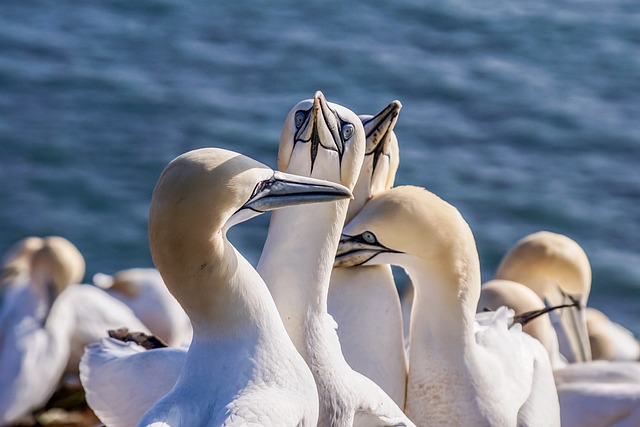
Located in the Minho region, Viana do Castelo is a city that beautifully combines historic architecture, scenic river views, and a unique blend of cultural influences. Overlooking the Atlantic Ocean, it remains one of Portugal’s lesser-known gems.
- What to Experience: Stroll along the Lima River and visit the Basilica of Santa Luzia for stunning panoramic views. Enjoy the sandy beaches of Praia do Cabedelo or explore the vibrant local markets. For history enthusiasts, the Museu do Traje showcases traditional costumes and regional attire.
- Why Visit: Viana do Castelo is perfect for those who enjoy a slower pace of travel. Its rich culture, festivals, and local gastronomy provide a delightful experience for visitors seeking authenticity.
5. Tavira: The Jewel of the Eastern Algarve

While the Algarve is renowned for its beaches, the eastern part, particularly Tavira, offers a different charm compared to the crowded spots in the west. This historic town along the Gilão River is often overlooked by tourists, making it a peaceful retreat.
- What to Experience: Wander through Tavira’s cobblestone streets, admire the old Roman bridge, and explore the charming houses with distinctive roofs. Visit Tavira Island for beautiful beaches, or take a boat trip through the Ria Formosa Natural Park.
- Why Visit: Tavira is the ideal destination for travelers looking for a mix of history, culture, and nature. It offers a quieter alternative to the bustling Algarve, without compromising on beauty or activities.
Conclusion: Portugal’s Best Kept Secrets Await You
While the popular destinations in Portugal are undoubtedly worth visiting, these underrated gems offer a unique way to experience the country’s diverse landscapes, rich culture, and warm hospitality. Whether you’re exploring the volcanic wonders of the Azores, sipping wine in Alentejo, or hiking through the Serra da Estrela, Portugal’s lesser-known destinations provide unforgettable experiences that go beyond the typical tourist path.
External Sources:
Europe
ECOWAS to Prevent Niger, Mali, and Burkina Faso from Exiting Regional Bloc

The Economic Community of West African States (ECOWAS) Parliament is intensifying its diplomatic efforts to dissuade Niger, Mali, and Burkina Faso from exiting the regional bloc.
Deputy Speaker of the House of Representatives, Benjamin Kalu, confirmed that parliamentary diplomatic channels are being activated to engage with the three countries, highlighting the critical need for cohesion within ECOWAS.
Kalu made these remarks during an interview on Saturday, August 17, 2024, with journalists in Abidjan, Ivory Coast, on the sidelines of a meeting of the parliament’s Joint Committee on Administration, Finance, Budget, Public Accounts, Macroeconomic Policy, and Economic Research, which he chairs.
Kalu assured that letters had already been dispatched to the governments of the involved nations, with visits by parliamentary delegates expected to follow shortly.
He expressed optimism that these discussions would pave the way for their reintegration into the regional organization.
“There are already mechanisms in place, through what is called parliamentary diplomacy, to reach out to them.
“Letters have been sent to them, and very soon, some of us will start visiting those countries to engage the heads of government.
“We will open up the doors for them to come back to the family; We need them.
“We will tell them, for instance, that, granted, maybe they were offended by one or two things, but let us sit down again and discuss,” the deputy speaker stressed.
Kalu also mentioned that even if the three countries decide to leave, ECOWAS’s financial stability would remain secure.
He emphasized the organization’s diverse revenue sources, such as the Community Levy and support from development agencies.
“There are many other sources. So, we want to make sure that we streamline it and know where monies are coming from.
“If these are not enough, we will increase because there are so many development agencies, there are so many people who are interested in the sub-region.
“There are multiple ways of raising funds for the parliament, as well as the community,” he said.
Besides tackling the issue of potential withdrawals, the ECOWAS Parliament is advocating for changes aimed at reinforcing legislative autonomy.
Kalu, who leads the House of Representatives Constitutional Review Committee in his country, noted that ECOWAS laws require revisions to align with the evolving political environment.
The suggested changes aim to strengthen the separation of powers and boost the institution’s standing on the global platform.
“Rightly put, we need to amend the Supplementary Act.
“The protocols that brought the ECOWAS Commission and ECOWAS Parliament into existence need to be overhauled.
“This is because these laws are not cast in stones; Indeed, no law is cast in stone”, the two-term lawmaker (APC-Abia, Bende Constituency) added.
Besides tackling the issue of potential withdrawals, the ECOWAS Parliament is advocating for changes aimed at reinforcing legislative autonomy.
Kalu, who leads the House of Representatives Constitutional Review Committee in his country, noted that ECOWAS laws require revisions to align with the evolving political environment.
The suggested changes aim to strengthen the separation of powers and boost the institution’s standing on the global platform.
Nevertheless, these efforts have been greeted with no response.
Europe
Who Are the Far-Right Groups Behind the U.K. Riots?
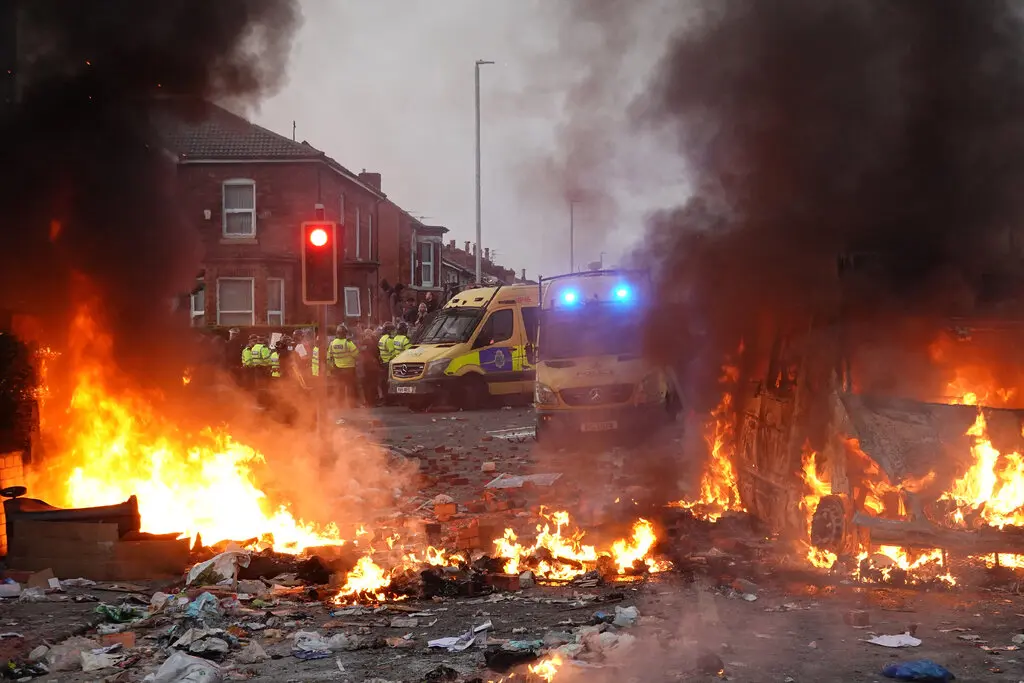
Violent unrest has erupted in several towns and cities in Britain in recent days, and further disorder broke out on Saturday as far-right agitators gathered in demonstrations around the country.
The violence has been driven by online disinformation and extremist right-wing groups intent on creating disorder after a deadly knife attack on a children’s event in northwestern England, experts said.
A range of far-right factions and individuals, including neo-Nazis, violent soccer fans and anti-Muslim campaigners, have promoted and taken part in the unrest, which has also been stoked by online influencers.
Prime Minister Keir Starmer has vowed to deploy additional police officers to crack down on the disorder. “This is not a protest that has got out of hand,” he said on Thursday. “It is a group of individuals who are absolutely bent on violence.”
Here is what we know about the unrest and some of those involved.
Where have riots taken place?
The first riot took place on Tuesday evening in Southport, a town in northwestern England, after a deadly stabbing attack the previous day at a children’s dance and yoga class. Three girls died of their injuries, and eight other children and two adults were wounded.
The suspect, Axel Rudakubana, was born in Britain, but in the hours after the attack, disinformation about his identity — including the false claim that he was an undocumented migrant — spread rapidly online. Far-right activists used messaging apps including Telegram and X to urge people to take to the streets.
Over 200 people descended on Southport on Tuesday night, many traveling by train from elsewhere in Britain, the police said. Rioters attacked a mosque, wounded more than 50 police officers and set vehicles alight.
On Wednesday night, another far-right demonstration brought clashes with the police in central London, leading to over 100 arrests. Smaller pockets of disorder broke out in Hartlepool, in northeastern England; in the city of Manchester; and in Aldershot, a town southeast of London.
On Friday night, Northumbria Police said its officers had been “subjected to serious violence” as far-right demonstrators set fires and attacked officers in Sunderland, a city in the northeast.
Saturday brought violent protests to cities including Hull, Leeds, Manchester, Nottingham and Stoke-on-Trent, as well as Belfast, Northern Ireland. In Liverpool, the police said more than 300 people had been involved in “violent disorder” on Saturday night, with businesses looted and two officers hospitalized.
The chair of the National Police Chiefs’ Council, Gavin Stephens, told BBC Radio on Friday that extra officers would be on Britain’s streets and that the police would use lessons learned from the 2011 London riots.
“We will have surge capacity in our intelligence, in our briefing and in the resources that are out in local communities,” he said. The organization has said that nearly 4,000 additional officers have been deployed to deter the violence.
Which groups are behind the unrest?
Several far-right groups have been at the riots or promoted them on social media. David Miles, a prominent member of Patriotic Alternative, a fascist group, shared photographs of himself in Southport, according to Hope Not Hate, a Britain-based advocacy group that researches extremist organizations.
Other far-right agitators spread information about the protest on social media, including British Movement, a neo-Nazi group. Images of the protests examined by Hope not Hate showed some people with Nazi tattoos.
After the disorder in Southport, the police said that supporters of the English Defence League had been involved. The riots have also attracted people linked to soccer violence, or hooliganism, which has long overlapped with nationalist movements in Britain.
A group of people point and throw a traffic cone at a police officer who bends over to get out of the way.
A crowd clashed with the police after a vigil near the site of the stabbing attack in Southport on Tuesday.Credit…Richard McCarthy/Press Association, via Associated Press
Officials noted that not everyone at the demonstrations had far-right views. David Hanson, a cabinet minister, told LBC Radio on Friday: “Some might be caught up in the summer madness. Some might be people who’ve got genuine concerns.”
But, he warned, “If you are organising this now, we will be watching you.”
Europe
Far-right rioters attack hotel housing asylum seekers in UK
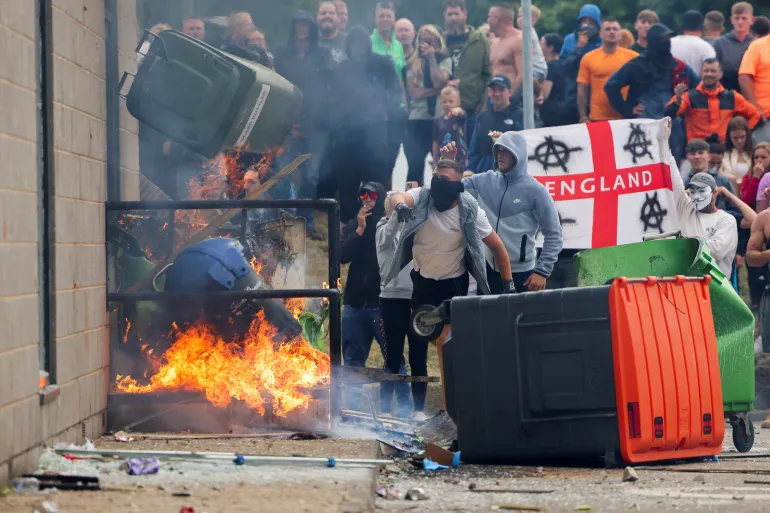
Far-right demonstrators have vandalised a hotel housing asylum seekers in the northern England town of Rotherham, as the United Kingdom grapples with its worst riots in 13 years.
On Sunday, hundreds of people gathered at a Holiday Inn Express hotel used to house asylum seekers near Rotherham, before throwing bricks at police, breaking several hotel windows, and then setting bins on fire.
Footage from UK broadcaster Sky News showed a line of police officers with shields facing a barrage of missiles, including bits of wood, chairs and fire extinguishers, as they sought to prevent the rioters from entering the hotel.
A police helicopter circled overhead, and at least one injured officer in riot gear was carried away as the atmosphere turned increasingly febrile.
The unrest is the latest bout of rioting in the UK that has gripped the nation, following a stabbing rampage at a dance class last week in the north of England that left three girls dead and several wounded.
According to police officials, false rumours spread online that the young man in the Southport stabbing was a Muslim and an immigrant, fuelling anger among the far-right in the country.
Speaking on Sunday, UK Prime Minister Keir Starmer said “there is no justification” for the far-right violence, which has led to attacks on mosques and assaults on Muslims and ethnic minorities.
“People in this country have a right to be safe and yet we have seen Muslim communities targeted and attacks on mosques,” Starmer said.

The prime minister added that “he won’t shy away from calling it [the rioting] what it is” and that is “far-right thuggery”.
“To those who feel targeted because of the colour of your skin or your faith, I know how frightening this must be,” he said.
“I want you to know this violent mob do not represent this country and we will bring them to justice.”
Starmer had been criticised by some for not being vocal enough in denouncing the explicitly racist and Islamophobic nature of some of the attacks committed by those rioting.
Zarah Sultana, a Labour MP who is currently suspended from the party for voting against the government, called on social media for Parliament to be recalled from its summer break.
Xenophobic rhetoric
Elsewhere in the UK, the atmosphere has also been particularly tense. In the northeast town of Middlesborough, protesters broke free of a police guard. As protests began in Bolton, near Manchester, police said that a dispersal notice had been authorised to give officers extra powers to tackle anti-social behaviour.
Police officials have said many of the actions are being organised online by shadowy far-right groups, who are mobilising support online with phrases like “enough is enough,” “save our kids” and “stop the boats”. They are tapping into a narrative – amplified by right-wing media outlets and commentators – about the scale of immigration in the country, in particular the tens of thousands of migrants and refugees arriving in small boats from France across the English Channel.
Critics have repeatedly pointed out that the spread of misinformation and the amplification of xenophobic rhetoric about immigrants and minority communities in the UK has led to the current outbreak of violence.
Rosa Freedman, a professor at the University of Reading, told Al Jazeera that the riots in the UK are a result of the former Conservative government, which lost power last month, giving legitimacy to a small minority of “racists”.
“Instead of hiding their faces, they have now been coming out … we cannot blame a Labour party that has [only] been in government [for] the past four weeks,” she said.
“There is a conversation that needs to be had in the UK and other countries about immigration …. we also need to tackle this from a human rights lens.”
Police have noted that calls to hold riots have come from a diffuse group of social media accounts, but a key player in amplifying them is Stephen Yaxley-Lennon, a longtime far-right agitator who uses the name Tommy Robinson.
He led the English Defence League, which the Merseyside Police has linked to the violent protest in Southport on Tuesday, a day after the stabbing attack. Yaxley-Lennon, 41, has been jailed for assault, contempt of court and mortgage fraud and currently faces an arrest warrant after leaving the UK last week before a scheduled hearing in contempt-of-court proceedings against him.
Meanwhile, Nigel Farage, who was elected to Parliament in July for the first time as leader of Reform UK, has also been blamed by many for encouraging — indirectly — the anti-immigration sentiment that has been evident over the past few days.
While condemning the violence, Farage has criticised the government for blaming it on “a few far-right thugs” and saying “the far right is a reaction to fear … shared by tens of millions of people”.
The anti-far-right group Hope Not Hate condemned the framing of the protests as “outpourings of legitimate anger”.
“They are not. This is racist violence spurred on by far-right hatred,” the group said in a statement. “Those directly involved in these horrifying scenes need to face the full force of the law.”
“Responsibility also lies with those who have promoted and defended these riots such as Tommy Robinson. This explosion of racist violence across the country is the result of years of far-right agitation,” the group said. “However, these events are also the result of a climate of anti-Muslim and anti-asylum seeker hostility stoked by elements of our media and supposedly mainstream politicians.”
Europe
UK PM says far-right rioters will ‘regret’ disorder
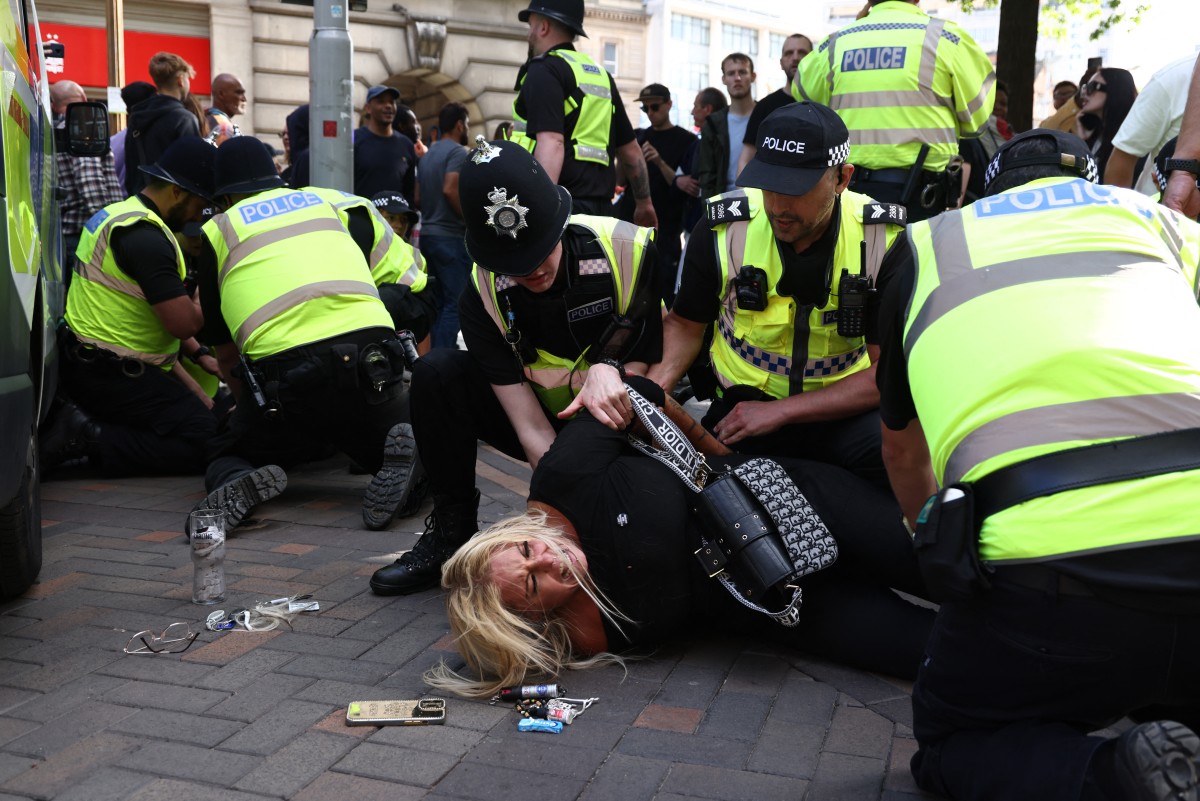
UK leader Keir Starmer warned far-right protesters on Sunday they would “regret” participating in England’s worst rioting in 13 years, as disturbances linked to the murder of three children earlier this week flared across the country for a fifth day.
Masked anti-immigration demonstrators smashed several windows at a hotel that has been used to house asylum seekers in Rotherham, South Yorkshire
Unrest related to misinformation about the mass stabbing last Monday in the northwestern English seaside town of Southport has impacted multiple towns and cities, with anti-immigration demonstrators clashing with police.
The violence is posing an early major challenge for Starmer, who was elected only a month ago after leading Labour to a landslide win over the Conservatives.
“I guarantee you will regret taking part in this disorder. Whether directly or those whipping up this action online, and then running away themselves,” Starmer said in a TV address.
He added that there was “no justification” for what he called “far-right thuggery” and promised to bring the perpetrators “to justice”.
Footage aired on the BBC showed rioters forcing their way into a Holiday Inn Express in Rotherham. They also pushed a burning bin into the building. It was not clear whether asylum seekers were inside.
In the northeastern English city of Middlesbrough, hundreds of protesters squared up to riot police carrying shields. Some threw bricks, cans and pots at officers.
The fresh disturbances came after more than 90 people were arrested on Saturday following skirmishes at far-right rallies in Liverpool, Manchester, Bristol, Blackpool and Hull, as well as Belfast in Northern Ireland.
Rioters threw bricks, bottles and flares at police — injuring several officers — looted and burnt shops, while demonstrators shouted anti-Islamic slurs as they clashed with counter-protesters.
The violence is the worst England has seen since the summer of 2011, when widespread rioting took place following the police killing of a mixed-race man in north London.
“We’re now seeing it (trouble) flooding across major cities and towns,” said Tiffany Lynch of the Police Federation of England and Wales.
Riots first flared in Southport on Tuesday night following Monday’s frenzied knife attack at a Taylor Swift-themed dance party in the northwest coastal city, before spreading up and down England.
- ‘Wake-up call’ –
They were fuelled by false rumours on social media about the background of British-born 17-year-old suspect Axel Rudakubana, who is accused of killing a six, seven, and nine-year-old, and injuring another 10 people.
Police have blamed the violence on supporters and associated organisations of the English Defence League, an anti-Islam organisation founded 15 years ago whose supporters have been linked to football hooliganism.
Agitators have targeted at least two mosques, and the UK interior ministry announced Sunday it was offering new emergency security to the Islamic places of worship.
The rallies have been advertised on far-right social media channels under the banner “Enough is enough”.
Participants have waved English and British flags while chanting slogans like “Stop the boats” — a reference to irregular migrants travelling to Britain from France.
Anti-fascist demonstrators have held counter-rallies in many cities, including Leeds where they shouted, “Nazi scum off our streets”, as the far-right protesters chanted, “You’re not English any more”.
Not all the gatherings have turned violent. A peaceful one in Aldershot, southern England, on Sunday saw participants hold placards that read “Stop the invasion” and “We’re not far right, we’re just right”.
“People are fed up with being told you should be ashamed if you’re white and working class but I’m proud white working class,” 41-year-old Karina, who did not give her surname, told AFP in Nottingham on Saturday.
Commentators have suggested that the demonstrators may feel emboldened by the political ascendancy of anti-immigration elements in British politics.
At last month’s election, the Reform UK party led by Brexit cheerleader Nigel Farage captured 14 percent of the vote — one of the largest vote shares for a far-right British party.
Carla Denyer, co-leader of the left-wing Green party, said the unrest should be “a wake-up call to all politicians who have actively promoted or given in” to anti-immigration rhetoric.
Europe
Ireland to ban ‘XL bully’ dogs

Ireland is banning the XL American bully dog breed following a fatal attack on a woman and the mauling of a nine-year-old boy that left him with serious facial injuries, a minister said on Friday.
The decision comes after the UK government announced a ban last year in England and Wales, and Northern Ireland and Scotland followed suit earlier this year in response to a wave of horrific incidents.
From October 1, it will be illegal to import, breed or re-sell the so-called XL bully breed in Ireland.
Current owners of XL bullies will be required to neuter their dogs in order to obtain a certificate of exemption by February 1, 2025, in order to keep them.
Once the legislation is enacted, any person in breach of the regulations will face a fine of up to 2,500 euros ($2,700), up to three months in prison, or both.
The ban was announced by the Minister for Rural and Community Development Heather Humphreys.
Setting out the measures Humphreys said she understood that many people would oppose the ban.
“We must be mindful however that no dog’s life is worth more than human life,” she said.
“If we do not take action now the number of these dogs in the country will grow and my fear is that these attacks will become more frequent,” she added.
The UK government announced a ban last October for England and Wales and XL bullies now have to be muzzled in public.
That ban came after a number of incidents including one in which a nine-year-old schoolboy, Jack Lis, was killed by an XL bully at a friend’s house.
Many owners defended the powerfully built dogs and stressed the importance of good training.
Critics, however, said the dogs had been specifically bred to be highly aggressive and even responsible ownership could prevent them from attacking on occasion.

2025: How To Plan A Budget For The Upcoming Year

Ruud van Nistelrooy Opens Up on Hurtful Manchester United Exit Before Taking Leicester City Job

Obasanjo would have died under Abacha if not for me -Gowon

Why I don’t trust any public institution in Nigeria – Fisayo Soyombo

Minimum Wage: Cross Rivers Workers to embark on indefinite strike

Bayer Leverkusen Forward Victor Boniface Faces Possible Sanction for Reckless Driving Incident

Radda approves N70,000 minimum wage for Katsina workers

PH refinery has not commenced bulk sales – NNPC

CBN issues Dec. 1, ultimatum against banks, ATM delays




